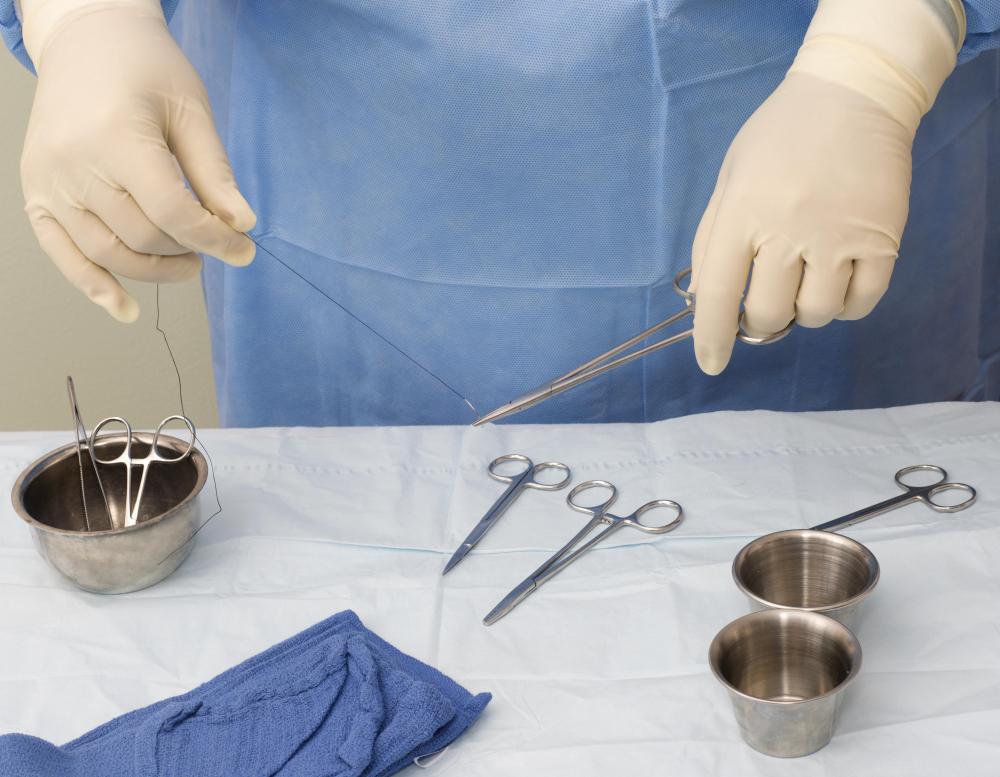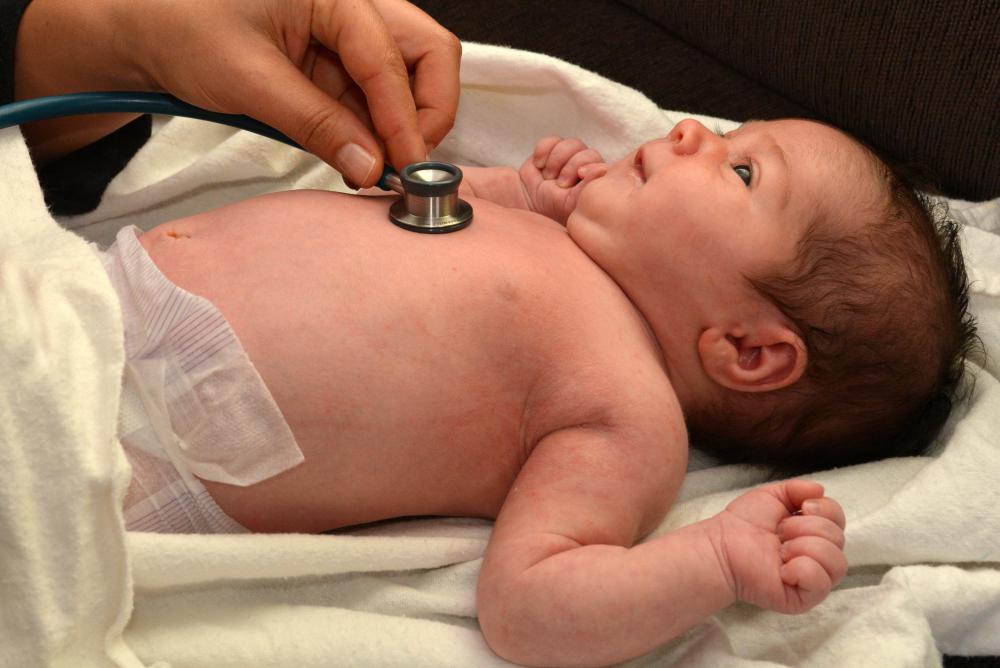At WiseGEEK, we're committed to delivering accurate, trustworthy information. Our expert-authored content is rigorously fact-checked and sourced from credible authorities. Discover how we uphold the highest standards in providing you with reliable knowledge.
What is a Diaphragmatic Hernia?
A diaphragmatic hernia is an emergency medical condition in which the diaphragm muscles are torn or deformed, often leading to severe breathing problems. In the majority of cases, diaphragmatic hernias result from congenital deformities and cause serious complications in newborns. Some patients experience hernias later in life due to direct trauma to the abdomen and chest. Emergency surgery is usually necessary to adjust the internal organs back into place and suture the damaged diaphragm. With immediate treatment and follow-up care to prevent infection, most infant and adult patients are able to survive without long-term health problems.
A congenital diaphragmatic hernia can occur when a fetus's abdominal cavity and internal organs fail to fully develop. There may be a visible opening or hole in the diaphragm, usually on the left side, that allows abdominal organs to move into the chest cavity and put pressure on the lungs. It is common for a diaphragmatic hernia to impede the development of one or both lungs, which can seriously limit a newborn's ability to breathe. The exact cause of a congenital hernia may be difficult to determine, though genetic mutations are usually involved.

Diaphragmatic hernias that are not caused by congenital problems are usually the result of traumatic accidents. A person who suffers a sudden impact to the abdomen, pelvis, or chest is at risk of developing a hernia. Pain that accompanies such an injury is usually immediate and severe, and an individual is likely to experience shortness of breath, nausea, and an inability to stand or walk.

An obstetrician usually notices a congenital diaphragmatic hernia before a baby is born through ultrasound screenings. After birth, doctors immediately insert a chest tube and provide intravenous fluids to stabilize the infant's vital signs. A team of specialist surgeons attempt to realign organs, close the hole in the diaphragm, and repair the lungs if they are damaged. In the case of an underdeveloped lung, a transplant may be necessary to save the baby's life.

An adult with a traumatic diaphragmatic hernia also needs emergency surgery to prevent a potentially life-threatening complication. A chest x-ray can reveal the extent of damage and organ bulging before surgery is attempted. Surgeons usually cut into the abdominal cavity, carefully pull organs back into place, and suture the diaphragm muscle. A patient is usually kept in the hospital for several days to monitor his or her condition, and then scheduled for regular checkups to make sure the problems are fully resolved.
AS FEATURED ON:
AS FEATURED ON:


















Discuss this Article
Post your comments